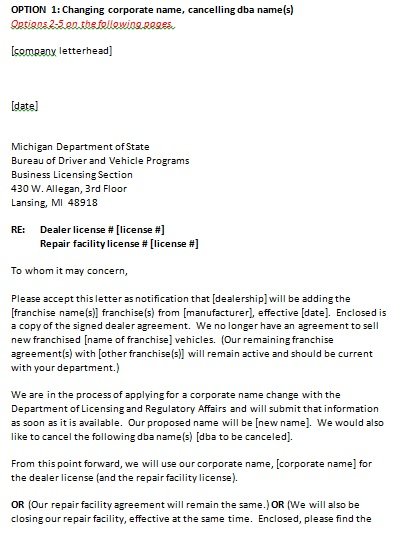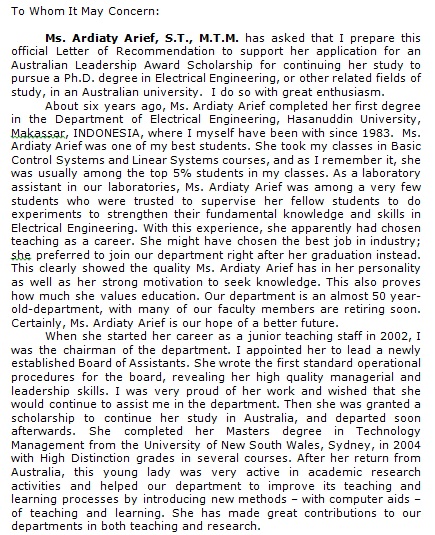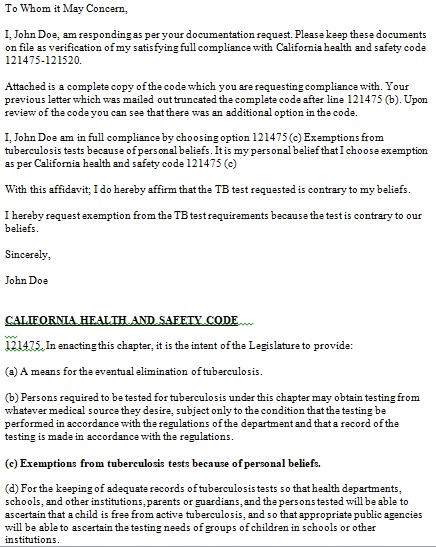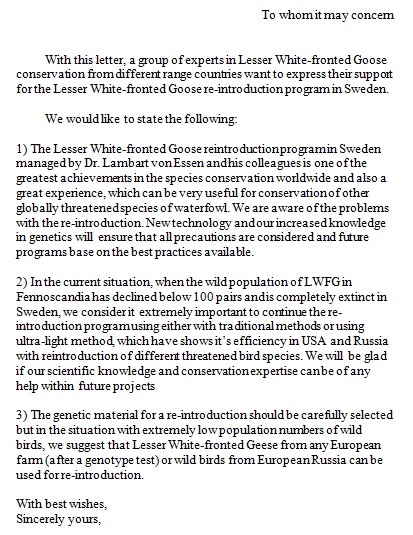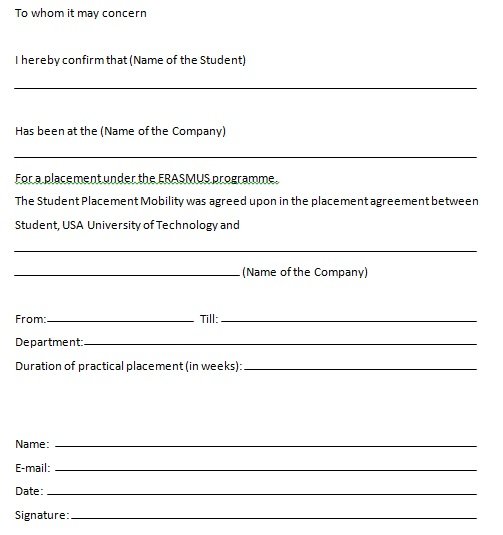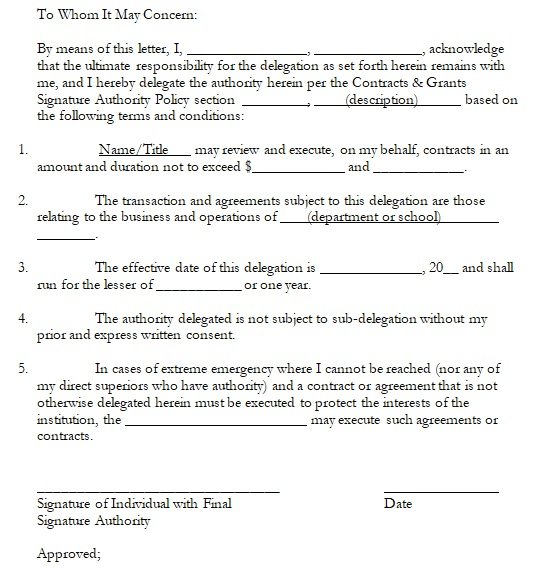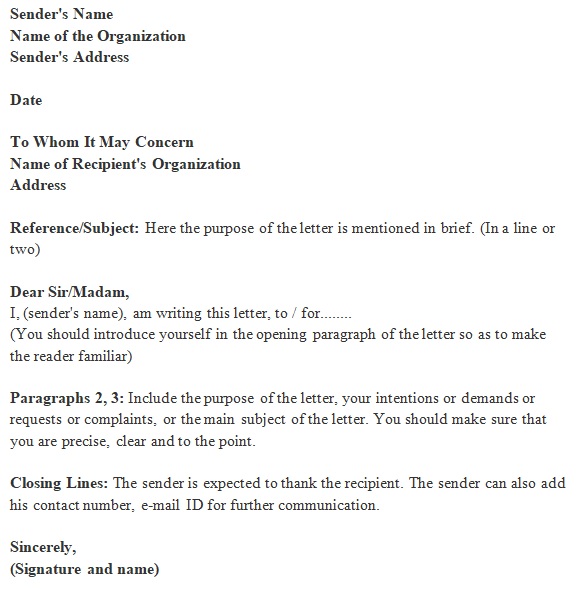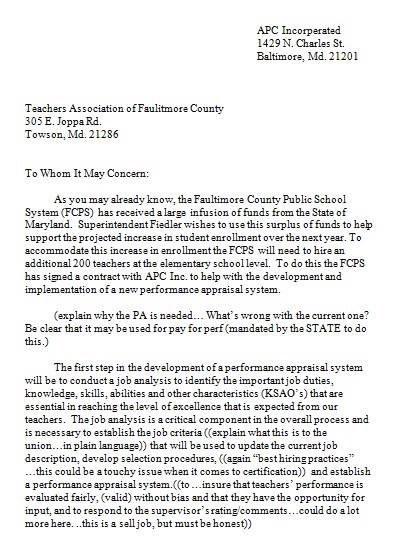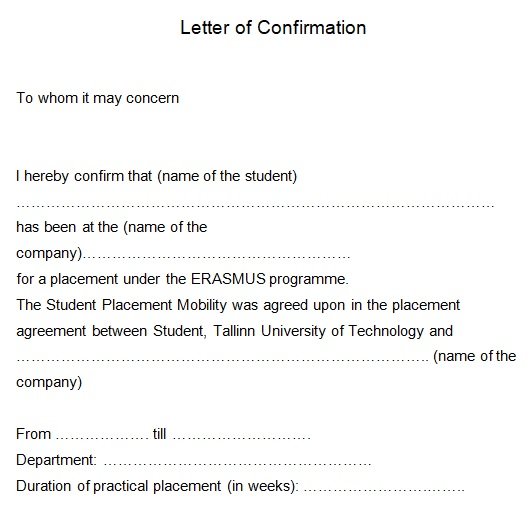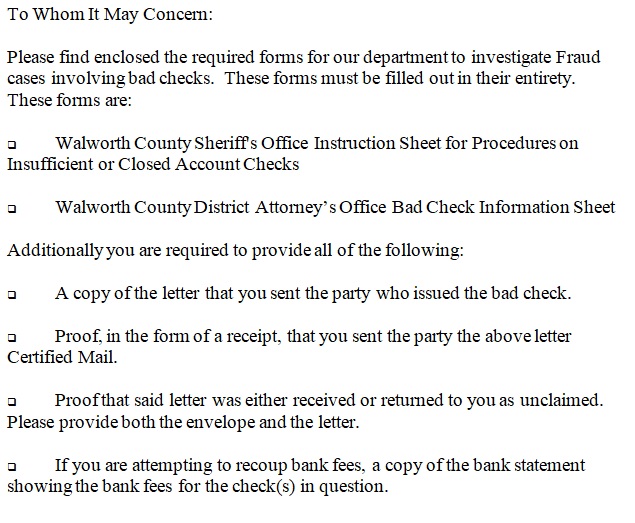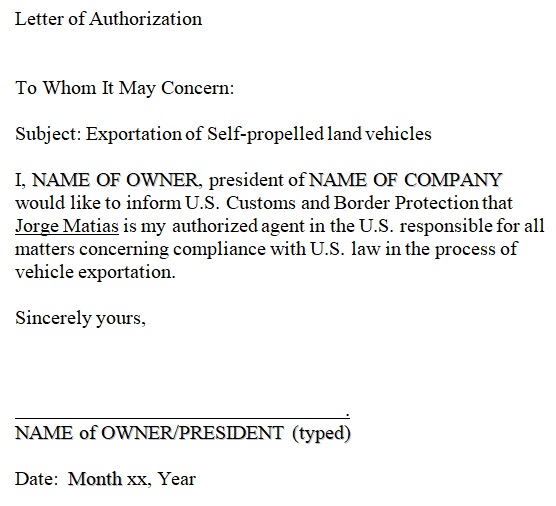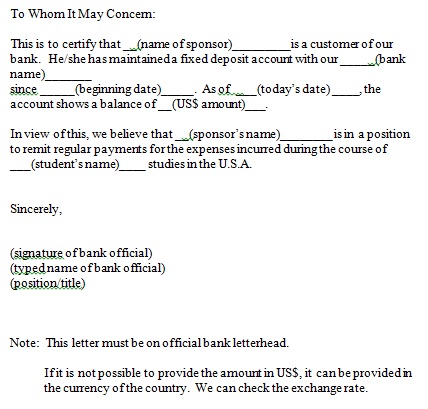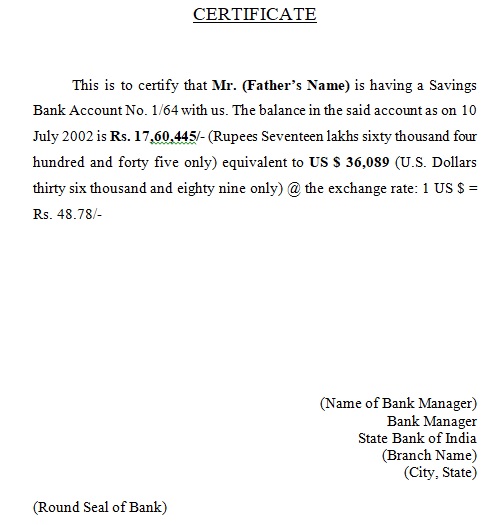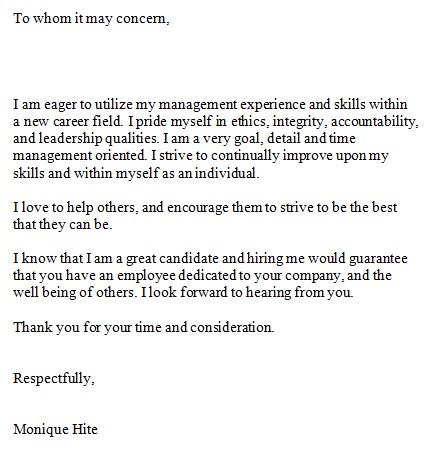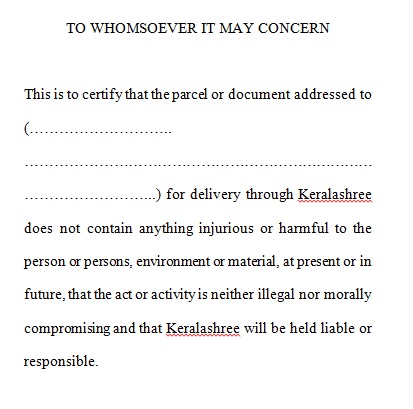The to whom it may concern letter is addressed to the person who would receive or read the letter. This phrase is a professional and formal greeting used in the letter when the recipient’s name or title is unknown. Usually, this phrase is used in business letters, cover letters, and other formal correspondence.
However, using this phrase is considered somewhat old-fashioned and a lazy way to approach correspondence. Before using it in your letter, you must identify when to use it and how to use it.
Table of Contents
- 1 Printable To Whom It May Concern Letters
- 2 In which letters, you can use ‘To Whom It May Concern’ salutation?
- 3 When you shouldn’t use To Whom It May Concern?
- 4 When not to use ‘To Whom It May Concern?’
- 5 To Whom It May Concern Letter Samples
- 6 How to write a “to whom it may concern” example?
- 7 Is it appropriate to use To Whom It May Concern?
- 8 How to address a general letter?
- 9 To Whom It May Concern Letter Examples
- 10 Some alternatives in case you aren’t comfortable with a general phrase:
- 11 FAQ’S (Frequently Asked Questions)
Printable To Whom It May Concern Letters
In which letters, you can use ‘To Whom It May Concern’ salutation?
This salutation usually use in the business related letters due to its broad and encompassing nature. You may use the To Whom It May Concern salutation in the following areas;
Employment cover letters
When job seekers are writing the employment cover letters, they don’t know the names of hiring manager or recruit officer. However, some companies specify the name of recruiters on the job advertisement or on the company’s website. But, some may not indicate their names, they just send a generic email. In such a scenario, the applicant should use this salutation ‘To Whom It May Concern.’
School concerns
Sometimes, parents want to communicate to a school through written correspondence about their children. The student population is higher in bigger academic institutions or schools so due to this reason, there is less interaction between teachers and parents. In this case, when you are writing a note about your child then by using ‘To Whom It May Concern,’ address a principal, director, or teacher.
Solicitation letters
Solicitation letters are sent to potential donors by the organizations who seek outside sponsorship or funding. They usually address the donor by using To Whom It May Concern but it is advisable to address them by name or title if you want to receive a successful response.
Recommendation letters
Many HR departments or Educational institutions require a letter recommendation from the applicants in order to screen potential ones. These letters might be written by a professor or manager and they may not know the hiring manager or department. So, you should use here To Whom It May Concern for the recommended party.
Feedback or suggestions
Customers are the one that provide valuable feedback that may assist the business. Since they don’t know who is behind the customer service or report so they use salutation ‘To Whom It May Concern’ while giving comments or suggestions.
When you shouldn’t use To Whom It May Concern?
It isn’t appropriate to use ‘To Whom It May Concern,’ in some instances. If you are writing a letter or composing an email that satisfies the following conditions that you shouldn’t use this salutation;
Personal letters
Since you are writing personal letters for your friends, family, and acquaintances so it isn’t appropriate to address them by using To Whom It May Concern. You should address them by their first or complete names. It could seem callous and rude if you don’t address them by name.
Absolute certainty
Don’t use To Whom It May Concern in professional matters. Address a specific person by their name and make sure that the spelling, job title, and the prefixes are accurate. You must know the name of the addressee in case of formal documents such as applications and proposals.
Condolence and sympathy
You should always address recipient personally in letter while conveying your sympathies to grieved family. It seems disrespectful and cold to use To Whom It May Concern. Also, you can use a family name in case you don’t want to address the letter to a specific person.
When not to use ‘To Whom It May Concern?’
You shouldn’t use this phrase in the following scenarios;
When writing a cover letter
The main purpose of a cover letter is to set yourself aside from the competition. You do stand out when you start this letter with this phrase. It would be difficult to find the hiring manager’s name so you can use much better alternative greetings other than “To Whom It May Concern.”
Writing a letter on your own behalf
It is fine to use this phrase if you are writing a recommendation letter for a friend or a letter of introduction for someone else. This is because you don’t know to whom the letter will be sent or how the letter will be used. But, you should always do your best to be more specific and modern with your greetings when you have control over where your letter is sent.
To Whom It May Concern Letter Samples
How to write a “to whom it may concern” example?
Consider the following tips to start such letters or emails using this generic greeting;
“To Whom This May Concern”
In this salutation, we use this instead of it. Both are pronouns, but ‘this’ shows something already discussed in conversation. While ‘it’ indicates something mentioned for the first time. Therefore, it is more appropriate to use a “To Whom It May Concern” letter as you’re introducing something for the first time.
“To Whomever It May Concern”
The expert linguist will feel baffled to decide which word to use: whoever, whom, who or whomever. The right choice is ‘Whom’ in such a case. This is because it is an object of a verb while ‘whomever’ is an object pronoun.
“To Those Who Are Concerned”
The letter is generally directed to just one person, not a group. It is a bit confusing to use this salutation because the letter might end up in the hands of various people. Since there’s no single or specific person addressed in it so no one can take responsibility for the purpose of the letter. However, there is a better chance that the letter will fall into the hands of the right person if you direct it to a single person.
Is it appropriate to use To Whom It May Concern?
Salutation is the first line that the recipient will read. So, you should make it effective and outstanding. If you aren’t satisfied while using this phrase then try some these alternatives;
Get personal
Do some research to find out the full name of the hiring manager in case you don’t want to use generic greeting. When you address the recipient by their name, they think that you really did hard work to find details about them as well as it indicates diligence and initiative.
Incorporate the whole organization
In case, after a lot of researching you can’t find the name of hiring manager then in the opening salutation, use the company’s name.
Address the letter to the head of department
If you still can’t find the details about the hiring manager then address the letter to the head of the department where you are applying for.
Use the salutation like “Dear Sir/Madam”
Using the greeting Dear Sir/Madam is another popular way to address the recipient in case you’re not yet acquainted with the person you want to address. The letters sound respectful by having this greeting and it can also grab attention.
Using a hook
An effective way to grab the attention of the reader is to write a passionate first sentence. This explains your enthusiasm towards the position you are applying for.
Address the whole group
In some cases, you have to address the letter to entire hiring group or committee. In your opening, use a phrase that will refer to the entire group. By doing so, you will show courtesy.
How to address a general letter?
You will use a general address when you have to write a general letter. The phrase “To Whom It May Concern” is very common. Consider the following pointers to use it accurately;
- The first letter of each word should be capitalized
- Use ‘Whom’ rather than using “Who” or “Whomever”
- When writing a business letter, use a colon rather than a comma at the end of the phrase.
- Double-space before starting the body of the letter
To Whom It May Concern Letter Examples
Some alternatives in case you aren’t comfortable with a general phrase:
Get personal
You should take time and research to find out the full name of the hiring manager instead of using a generic greeting. When you address the person by name, it will show that you did your homework.
Incorporate the whole organization
In the opening salutation, make use of the company’s name in case you cannot retrieve the hiring manager’s name.
Address the letter to the head of the department
Address your letter to the head of the department in case you haven’t got the contact details of the hiring manager.
Use the greeting “Dear Sir/Madam”
This is primmer, proper, and formal as well as a popular salutation if you aren’t yet familiarized with the person you wish to communicate with. It attracts the reader because it has a respectful tone for them.
Try to use a hook
A good way to capture the attention of the reader is by writing a passionate first sentence. It may show your passion for the position you are applying for.
Reference your referral
The person who recommended you for the job you’re applying for, you should always refer or mention them in your letter.
Time of day
In case, you are sending your letter via email then customize your greeting according to what time of day you sent it.
Address the whole group
If you have to address the entire hiring group or committee then use a phrase in your opening that will refer to the entire group.
FAQ’S (Frequently Asked Questions)
Yes, it is appropriate to use “To Whom It May Concern” when you aren’t certain who it is you’re addressing. But, using this phrase is inappropriate if you know the person you are addressing.
Capitalizing the first letter of each word is the accurate way to write “To Whom It May Concern.”

